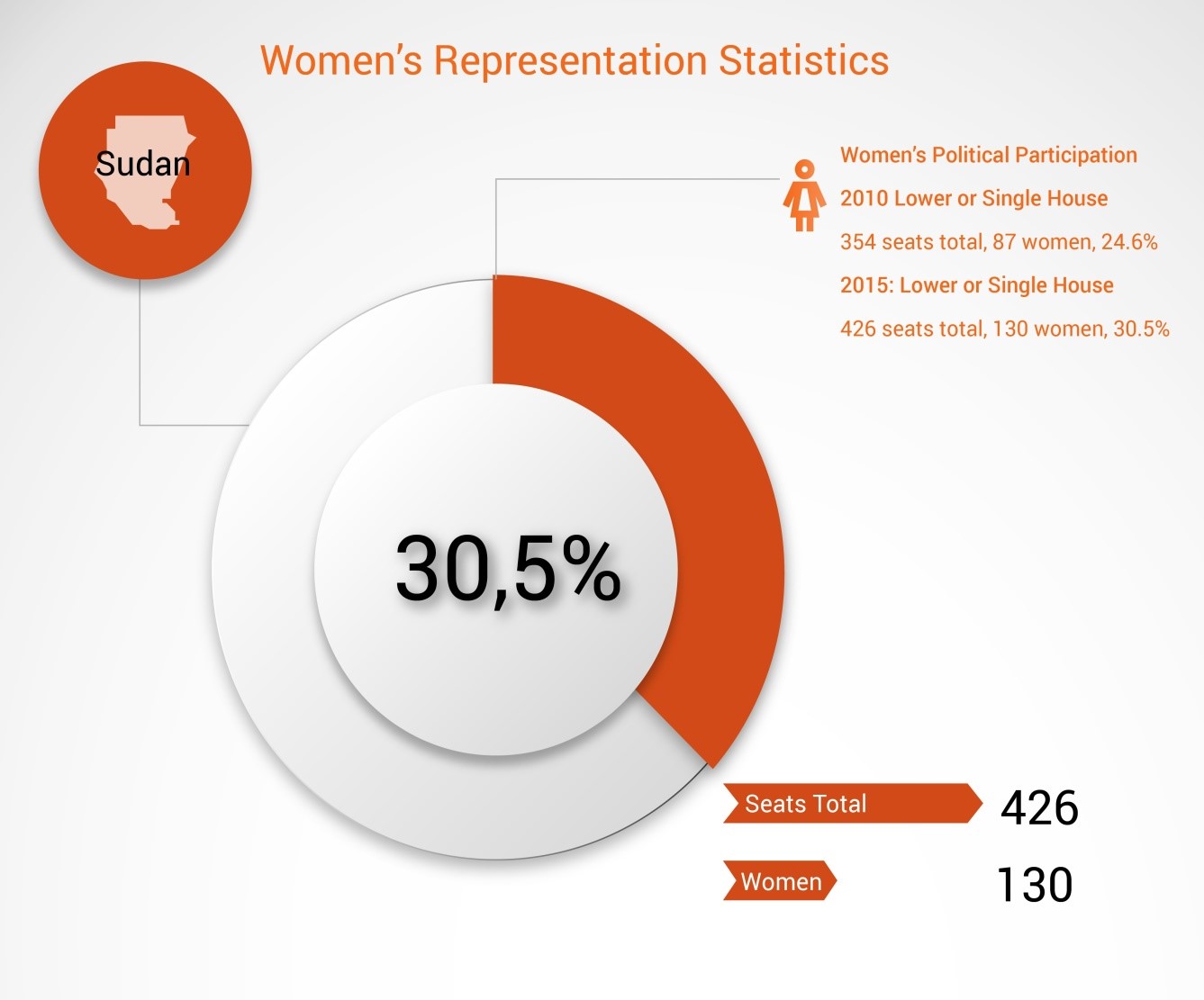2015 Elections Monitoring
Sudanese general elections were held on 13-16 April 2015 in order to elect the President of the National Assembly.
These are considered as the first constitutionally stipulated democratic elections after the secession of South Sudan. Omar al-Bashir was re-elected (94% of the vote) through the two-round system where the President is elected by absolute majority vote. In the National Assembly 450 members are elected by popular vote to serve 6-year terms. According to the Sudanese electoral system, 60% of seats of the National Assembly are elected by plurality vote in single-member districts. Then, 15% of seats are elected under closed-list proportional representation. Ultimately, 25% of seats are elected under closed-list proportional representation from lists that may contain only women. It has to be noted that all constituencies correspond to states and the threshold is 4% in each.
Despite the fact that the African Union Election Observation Mission (AUEOM) was satisfied with the outcome of the elections and concluded that the results reflect the will of the Sudanese voters, western countries, including the Unites States (US), Britain and Norway critisised the polls for not being free and fair.
Women’s political participation
Sudanese women gained the right to be elected way before many countries in the region but their involvement in politics remains limited. Several factors have contributed to this such as the long civil wars, the economic meltdown and the conservative culture. The 2008 Sudanese electoral law introduced a quota of 25% as a minimum for women representation in legislative bodies at national, regional, state and local levels. The percentage of women represented in the National Assembly after the latest elections is 30.5%.
Under article 15 of Sudan’s Interim Constitution “the State shall emancipate women from injustice, promote gender equality and encourage the role of women in family and public life”. Nonetheless, in October 2011, President Omar Hassan al-Bashir announced that following the secession of South Sudan, a new constitution would be introduced based on Sharia law. It should be highlighted that Sudan is not a party to the Convention on the Elimination of all forms of Discrimination against Women (CEDAW) and has signed but not ratified the Protocol of the African Charter on Human and People’s Rights on the Rights of Women in Africa. In addition, the UN Special Rapporteur on violence against women has noted that despite the existence of laws, policies and programs, violence against women is an issue in Sudan as a large number of women and girls live in deep inequality, poverty and conflict and this is exacerbated by violence in both public and private spheres.
Concluding remarks
The situation of women in Sudan is majorly influenced by the history of conflict and political changes. Women continue to shoulder the burden on the displacement and poverty associated with conflict and in rural areas less than a third of women have access to education. Gender inequalities persist as patriarchy prevails. For instance, women must always defer to their husbands in administering their assets and they are not allowed to travel without their permission. In the political sphere, although Sudan has adopted a quota system which can be considered as a victory for women, often women who participate in politics and are in the public sphere are subject to harassment and abuse.

